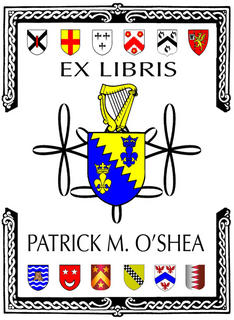The Coming Iraqi Civil War
 It is dangerous to predict the future, but the sputtering negotiations over the draft Iraqi constitution are not inspiring confidence over the future stability of the country. In fact, the draft that now exists features a weak central government, with a largely autonomous Kurdistan in the north, and a Shi'ite state in the south that will, no doubt, develop ever closer ties to Iran. (Remember Iran? They are the ones who have reactivated their nuclear plants and are enriching nuclear fuel again...)
It is dangerous to predict the future, but the sputtering negotiations over the draft Iraqi constitution are not inspiring confidence over the future stability of the country. In fact, the draft that now exists features a weak central government, with a largely autonomous Kurdistan in the north, and a Shi'ite state in the south that will, no doubt, develop ever closer ties to Iran. (Remember Iran? They are the ones who have reactivated their nuclear plants and are enriching nuclear fuel again...)There are also troubling signs that Islamic law will be forced into a position of supremacy over civil law, creating either a theocracy, or splintering the country as large regions reject Sharia law in favor of civil law. In the ensuing chaos, US troops would be caught in the sectarian struggle, attempting to support a theoretical central government that wields no real power over the autonomous regions. This is a recipe for alienating both the Kurdish north and the Shi'ite south, areas that were previously more uniformly supportive of US suppression of the Baathist Sunni minority. We are about to lose our remaining friends.
So, let us examine what we have thus far gained for the 1872 US dead and $200 billion, in addition to over 14,000 wounded and a tremendous forfeiture of international good will (not to mention uncounted thousands of Iraqi dead, most of them innocent civilians):
* Iraq, which had never really harbored terrorists before, is now the primary destination for those who wish to kill Americans.
* Gas is now at about $2.60 per gallon. (Remember all the talk about the urestricted flow of plentiful oil from Iraqi oil fields, and a boost to world supplies that would keep petroleum costs low?)
* Iran has moved decidedly to a more conservative stance, with a hard-liner now the elected president. It has now completely ignored UN seals on its nuclear plants, and has re-started a fuel enrichment program that could eventually lead to nuclear weapons.
* The rosiest Pentagon estimates now suggest that US troop deployments could remain at present levels for at least another 4 years. Defense Secretary Rumsfeld has been quoted as saying that the US presence there could last for the next 10 years. Even with a substantial decrease in the rate of casualties, this period would likely see thousands of additional US military deaths.
* With 130,000 or more troops in Iraq, and more supporting their operations from outside Iraq, the US is severely limited in its ability to address other conflicts or security crises as they arise.
* President Bush now has an approval rating of 40%, the lowest of his presidency.
* Colin Powell, the Secretary of State who "made the case" for WMD to the United Nations, resigned and has retired from public life entirely.
I don't think that the above were the fondest hopes of the neoconservatives when they implemented the Iraqi war plan.
The greatest injustice is that the men and women of the armed forces, who put their lives on the line, are fighting and dying in a war that has far more negative consequences than the political leadership anticipated. They serve with honor, and our leaders have a responsibility to only ask them to risk their lives when it is necessary for the security of the United States. Sadly, I am not at all convinced that Iraq ever met that standard.
And it could become much, much worse.
If the shaky constitutional negotiations break down, we could very quickly see a collapse of the country into open conflict between Sunni and Shia, with the Kurds isolating themselves (and making Turkey and Iran nervous, as both of these countries have their own Kurdish minorities). Where will the US plant its flag if this happens? Which group do we support? Will there be enough of a central government to be propped up by US military power? How will we decide which groups are deserving of our assistance in a fragmented Iraq?
Thus far, the Bush Administration seems unwilling to admit that this is even possible. They have shut their eyes, plugged their ears with their fingers, and are rocking in a dark corner, desperately hoping to dissociate and find their "happy place." But it IS possible. With each passing day of failure to draft even a weak constitution, it slowly migrates from possible to probable.
And our troops will have a front-row seat for it. Perhaps it will appear to be a blessing to have Iraqis killing each other instead of focusing their anger at US soldiers, but it certainly won't square with the notion so frequently advanced now of a US military presence deployed to "help the Iraqi people." We will more likely stand back and watch it burn down, because we simply won't know which side to take.
Perhaps an open civil war is the only thing that would bring US troops home in the near term. If we have no idea which side to assist, we might just pull troops out and say, "let us know when you're done killing each other, and maybe we'll come back and help." Or maybe we'll just brand it all as "an internal Iraqi matter," and let them fight it out, and may the best faction win.
I hope I'm wrong about this one. I really do.
-PMOS







